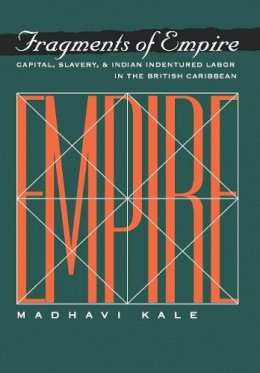
Fragments of Empire: Capital, Slavery, and Indian Indentured Labor in the British Caribbean
Madhavi Kale
When Great Britain abolished slavery in 1833, sugar planters in the Caribbean found themselves facing the prospect of paying working wages to their former slaves. Cheaper labor existed elsewhere in the empire, however, and plantation owners, along with the home and colonial governments, quickly began importing the first of what would eventually be hundreds of thousands of indentured laborers from India.
Madhavi Kale draws extensively on the archival materials from the period and argues that imperial administrators sanctioned and authorized distinctly biased accounts of postemancipation labor conditions and participated in devaluing and excluding alternative accounts of slavery. As she does this she highlights the ways in which historians, by relying on these biased sources, have perpetuated the acceptance of a privileged perspective on imperial British history.
Product Details
About Madhavi Kale
Reviews for Fragments of Empire: Capital, Slavery, and Indian Indentured Labor in the British Caribbean
Gyan Prakash, Princeton University
"A landmark study. The book gives a completely new reading of the cultural, racial, and economic dynamics of indentured Indian labour in the British Caribbean. The book is nothing less than a wake-up call to postcolonial theorists."
EHR
"Fragments offers a new and refreshing perspective, taking us beyond chronology to a thorough examination of some of the macroconsiderations which tied together an early attempt at globalization. . . . Any attempt to understand this present must be based on that past. Fragments of Empire successfully unravels much of that complicated past, making sense of a tangled maze of imperialistic devices. In this sense it is a very useful continuation of our understanding of worldwide diasporas."
International Review of Social History
